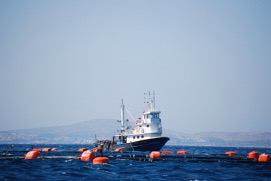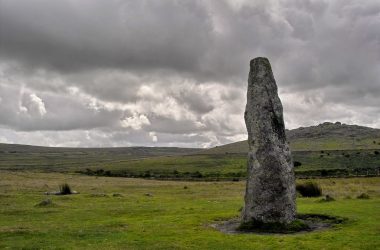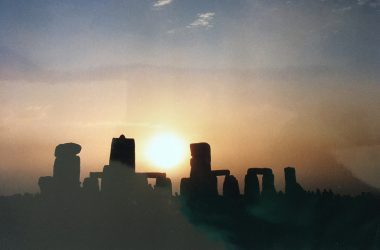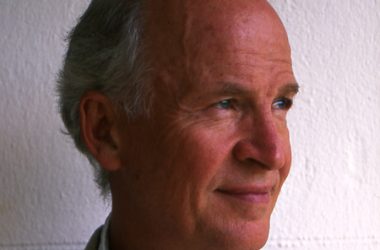By Peter Marshall
August 5th, 2020

The sea makes up about 70% of the Earth’s crust. This planet from space is blue rather than green or brown. The sea has larger biodiversity than a rain forest. Yet human beings are destroying it. It is being destroyed by our industrial activity which increases the acid in the sea water while global warming or rather heating created largely by us is making sea levels rise dangerously. If we continue, low-lying countries like the Netherlands, Maldives and Bangladesh, will no longer be like they are. The North American and others seaboards will be badly affected or may not survive. Adverse weather – floods, hurricanes and droughts – is getting worse. There is probably an element of the long-term rhythms of nature in climate change, but we have made it far worse since the Industrial Revolution around about 1800.
At the same time, in recent years there has been an increased dumping of rubbish, particularly plastic, in the sea. An area of plastic waste the size of Texas is swilling about in the Pacific. The river Thames of London, which used to be an open sewer, was cleaned up to allow salmon to return and other fish species to flourish, but it is now full of plastic waste and micro plastics. In the Mediterranean the further East you go the more plastic waste there is, especially where there is civil war.
I have gone sailing in the Mediterranean and there are hardly any fish left except in fish farms. These are harmful to fish and the sea. They not only use five pounds of smaller fish to grow one pound of carnivorous fish in farms but they pollute the sea with their excreta, growth hormones and antibiotics used to prevent disease. Half of all fish consumed in the US come from fish farms.
All oceans and seas have been denuded by fish for human consumption. It is important to recognise that fishermen, though they individually can be very experienced about the sea and are often well-intentioned, are hunters at heart and they will continue to hunt until there is no fish left. Nothing seems to stop them. The large fishing fleets, for example, on the south-west coast of England where I live, are based in Brixham in Devon and Newlyn in Cornwall. The individual fishermen can be very brave but they are seriously underpaid. The actual owners of the hi-tech trawlers are a few millionaire families, sitting behind computer screens safely ensconced on land. The sophistication of technology now makes it easy to track fish and catch them. Governments will eventually pay the owners money to stop fishing as stocks dwindle, as in other parts of Britain and the world.
Millions of lives of fish are also wasted each day, either because they are deemed too small or not tasty enough for humans. Fish are not only served to millions of pets to eat as well as humans but turned into fishmeal to feed fish in farms or fertilize the land. It is a huge waste and unnecessarily cruel. Having fished local waters out, the British trawlers as well as the Russian and Japanese trawlers, have been vacuuming fish up off the West Africa coast down to South Africa and beyond so local inshore fishermen can hardly have a look in. Inshore sustainable fishing to feed the fishermen’s families, is not as bad as huge industrial trawlers which hunt the sea and steal and kill everything.
I have seen for myself off East Africa dynamiting and poisoning for fish which have turned a vibrant coral reef into a white desert. A third of the Great Barrier Reef off eastern Australia has disappeared due to increased warming of the oceans and the acidification of the water caused by the industrial activity of humans. Yet there is no let-up in this destruction of the oceans and seas. Things are going from bad to worse. Nowhere on earth, from the highest mountain to the deepest trench in the seas, does not show the negative footprint of humanity.
Yet we continue as before, despite a small and temporary hiccup caused by the corona virus, to despoil the environment where we live. Above all, because of global heating, as every sensible person knows, the ice caps are melting, and thereby increasing the level of the seas. It will be not long before there are no polar bears. While this may be good news for seals, their primary source of food, it is bad news for the overall diversity of the sea. My brother has noted by his own experiments that the variety and numbers of plankton are diminishing, the basis of food for all creatures in the sea.
I have been a vegetarian for almost fifty years and now veering on veganism and don’t eat fish. We don’t need to eat fish or destroy the sea with our waste in order to live and prosper. Nevertheless, if you choose to eat fish it is better that it be sustainable and from a healthy source.
The big ships burn thick oil and are the wold’s worst polluters, producing about 20 % of hot houses gases. In one year alone, a single large container ship can emit cancer and asthma-causing pollutants equivalent to that of 50 million cars. Nowhere in the seas is silent from warships and trading ships which severely disorient the whales and dolphins which our species have not killed off. We are at a crossroads in our relations with nature; we can continue to kill and exploit other beings and in the long term kill ourselves and destroy much of the life and environment of the planet, or we can desist and leave it to get on with itself.
I write this in the hope that people will stand back and weigh up what they have done and are doing to the sea, particularly in the last 200 years, but I do not hold great expectations. In my lifetime, it seems that inequality in the world has grown and the degradation of the natural world has increased. It is therefore time to develop a ‘sea ethic’, just as some have called for a ‘land ethic’. We should consider the sea as an ecosystem containing greater biodiversity than on the land. It is not just a rubbish dump, an unending source of food, a military exercise area, a pleasure playground or a picturesque backdrop to people on land.
We should therefore value, cherish and revere it in itself, not just as a means for our narrow human interests. It is of value in itself as an ecosystem which should be allowed to thrive and flourish. ‘Hands off the sea and nature!’, I say.
It is no longer a case of ‘I think therefore I am’, as Descartes said, or ‘I am therefore I think’, as Jean-Paul Sartre and the existentialists said, but ‘I consume, therefore I exist’. Many people don’t want a better world or greater diversity but ‘retail therapy’. They don’t think that the fate of the sea and what lives within it are important. It is a sorry but real state of affairs in advanced capitalism.
Most people have become brainwashed and voluntary slaves, living in self-imposed shackles of illusion and collective hallucinations. They do not appreciate their lives are intimately connected to the health of the sea.
It is clear a ‘sea ethic’, a morality of leaving the sea alone and free from human interference, should become central to all our lives. I only hope people will wake up before it is too late.
Peter Marshall is a philosopher, historian, biographer, travel writer and poet. He has written eighteen highly acclaimed books which are being translated into fourteen different languages. His circumnavigation of Africa was made into a 6-part TV series and his voyage around Ireland into a BBC Radio series. He has written articles and reviews for many national newspapers and journals.




